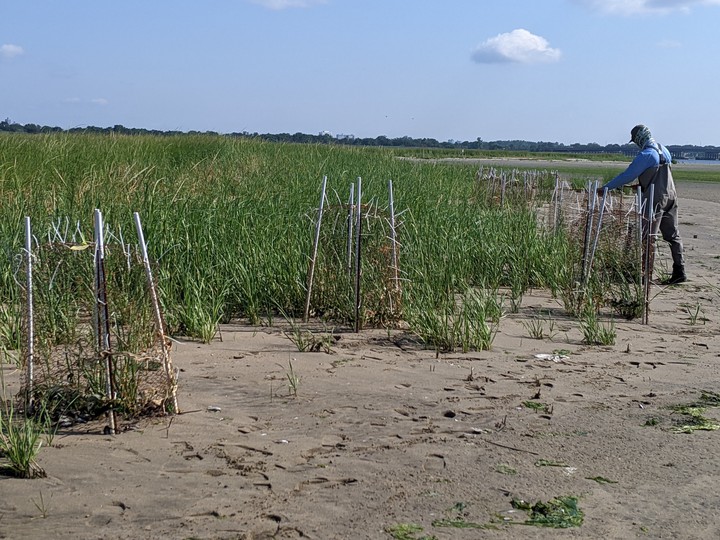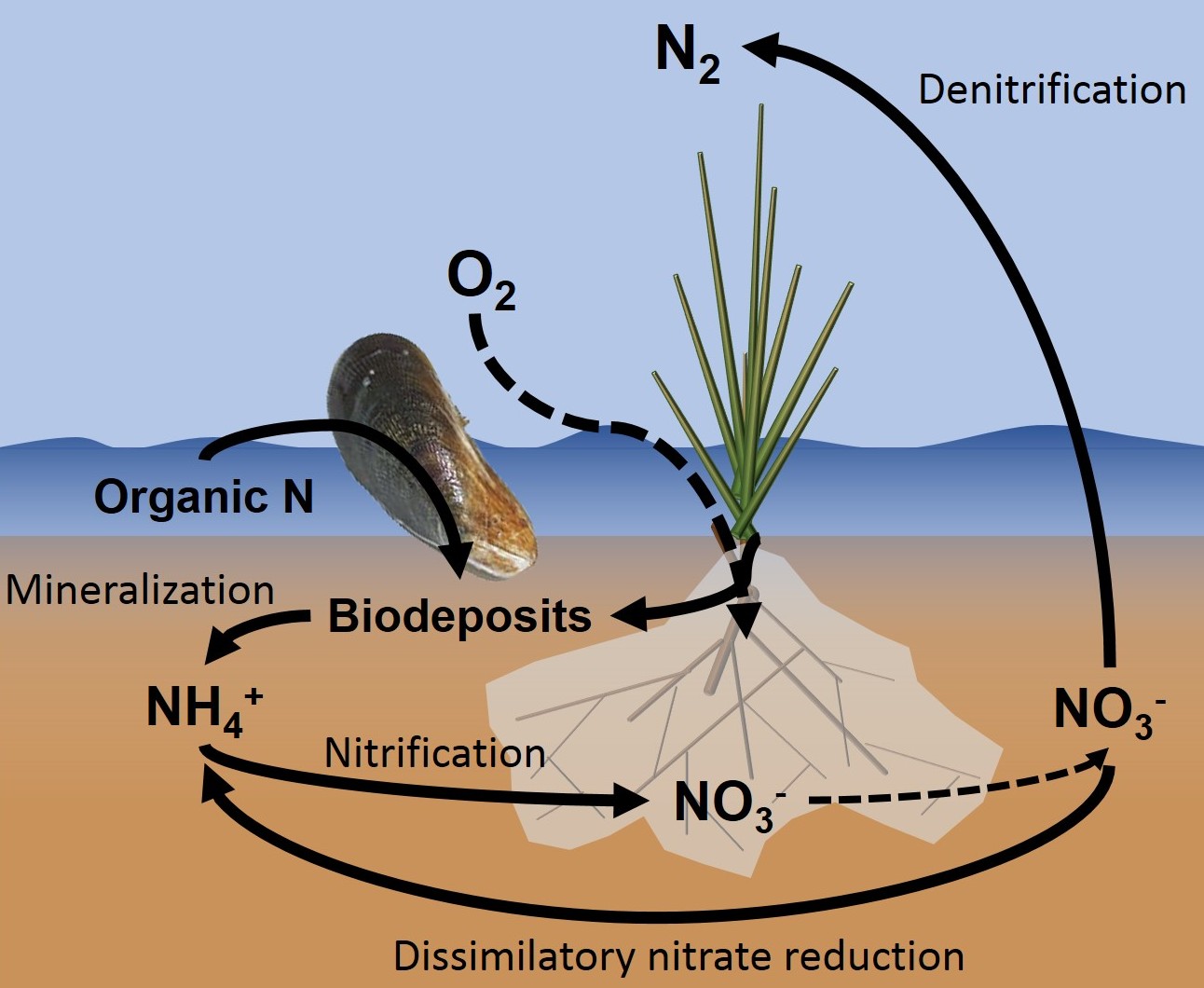Mutualistic Species Interactions
 Geukensia demissa addition experiment at Elders East (Jamaica Bay, New York, NY). Photo credit: M Alldred.
Geukensia demissa addition experiment at Elders East (Jamaica Bay, New York, NY). Photo credit: M Alldred.
Project Description
The relationship between ribbed mussels Geukensia demisssa and smooth cordgrass Spartina alterniflora is a classic example of a mutualism. The grass provides shade and settlement habitat for mussels, while mussels stabilize sediment surfaces and fertilize plants through deposition of feces and pseudofeces. We investigate whether the presence of ribbed mussels in restored urban marshes of Jamaica Bay and the Harlem River (New York, NY) enhances plant growth and nitrogen-removal services.

Project Video
Our project was featured in “It’s mutual! Ribbed mussels and smooth cordgrass: How two species can help restore urban salt marshes and clean the estuary, " a short video in the Hudson River Park’s Submerge Marine Science Festival. Produced by Christopher Girgenti, Randall’s Island Park Alliance in Summer 2022.
Collaborators
Chester Zarnoch, Baruch College CUNY
J. Stephen Gosnell, Baruch College CUNY
Timothy Hoellein, Loyola University Chicago
Denise Bruesewitz, Colby College
Christopher Girgenti, Randall’s Island Park Alliance
Patricia Rafferty, National Park Service
Funding Sources
Hudson River Foundation Grant 001-19A. PI: Alldred